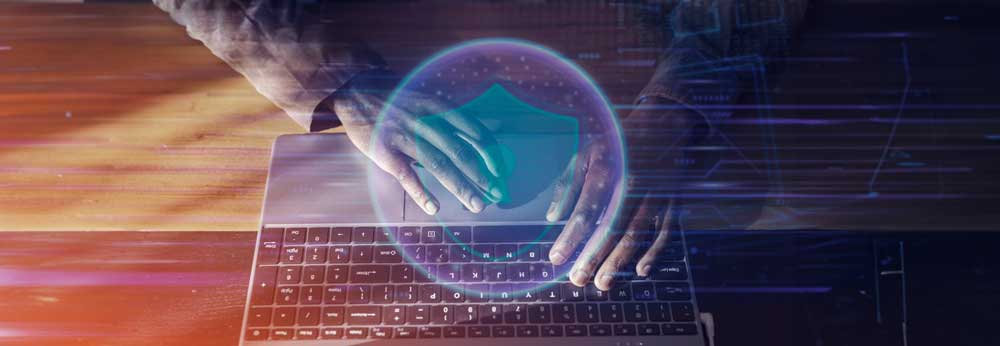Visibility that Creates Value
Top 5 Must Haves For The “Return To Office”
Numerous studies have shown that employee preferences have changed since pre-pandemic times. A recent Robert Half survey found that only 25% want to return to the office full-time. Another survey reveals that 1 in 3 people would actually quit if asked to return to the office full-time. Harvard Business School surveyed 1,500 professionals and found that 27% want to work remotely full-time while 61% want to work from home 2-3 days a week. Only 18% want to go back to an office full-time.
Combining those metrics with the favorable outcomes and productivity gains we’ve seen over the last 15+ months in a remote environment, a hybrid approach seems like the most popular, and viable, option for businesses in a post-pandemic world. In a hybrid environment, some employees will work from home full-time while others will go to the office; or, staff will alternate days in the office and days at home.
So, if some of us are returning to the office and others are working remotely, how can we ensure a seamless transition, accountability across teams, and, ultimately, success?
On the whole, organizations have to be intentional about the future of work. Things are not simply going back to the way they were, flexibility is a requirement, and several new processes will need to be put in place.
Below we outline the top 5 must haves.

Implement A Cybersecurity Plan
Pandemic or not, new types of cybercrimes seem to pop up every day. With some employees at home and some in the office, it’s important to ensure that everyone is well-informed about the risks of a cyber attack. Educate them on how to recognize phishing and other scams and provide a list of best practices for keeping devices secure. Some organizations even make cybersecurity fun by incorporating games into the learning process, giving away prizes for completing quizzes, and keeping training light, not scary.
The biggest security threats, according to an article in Expert Insights, are phishing attacks, malware attacks, ransomware, weak passwords, and insider threats. Make sure your team understands the differences and how to identify when something seems fishy.
Home networks add a unique layer to the cybersecurity challenge as they do not typically have the strong controls you would want to have in a remote office for your business. Businesses need to consider things like firewalls, secure wireless, or even VPNs for their remote employees. 100% remote teams may need some additional guidance on how to stay protected outside of the office. But, it’s also important that both in-office and remote teams have the same levels of security set up on their devices – remote employees should not feel penalized for being remote.
Outside of training and retraining your staff, in order to keep your business protected, ensure a cybersecurity solution made up of tools and processes is clearly communicated and understood by all employees on staff.

Provide Simple Communication Channels
Communication was important when we were in the office as well as when we were remote but it must remain at the top of the list as we prepare for the future. If in-office employees don’t have a clear and simple way to communicate with remote employees and vice versa, collaboration will flounder and isolation will ensue.
Good communication can promote teamwork and keep management and employees aligned – that means strong communication skills are a must. It also means that reliable communication tools are a must.
Things like video conferencing, messaging apps, and unified phone systems should exist in every modern business. Some of our favorites are Slack, Zoom, RingCentral, and Google Hangouts but there are so many options today that make it easier than ever before to communicate with clients, partners, and colleagues.
Workplace communication tools like Slack make it easy for employees to stay on top of ongoing projects, brainstorming sessions and plans for future work, regardless of where they’re located. That steady flow of communication brings teams closer, keeps relevant conversations top of mind, and makes it quick and painless to get updates when they’re needed.
Encourage employees to use the tools you’ve put in place, not their personal cell phones, for example, so communication and process are streamlined. It’s also ok (and recommended!) to use internal communication platforms to have some fun. They can double as team-building tools where people share funny memes and pictures of their pets, and provide some insight into the person behind the employee.
Remember, though, different apps serve different purposes – choosing the right channel matters. Email, for example, should generally be used for more formal digital communication. Emails tend to support longer conversations, multiple recipients, and a specific goal but don’t typically require an immediate response. If your email is time sensitive or the chain goes on for more than 3-4 rounds consider either picking up the phone or adjusting your subject line so it’s more action-oriented. Text and instant messaging, in contrast, are more casual (emojis and abbreviations are welcome!) and the expectation is that responses should come pretty quick, i.e. within an hour. Do ensure boundaries when using text or IM – just because these channels are instant in nature does not mean they should be used outside of work hours. And, if there’s some sort of emergency, pick up the phone.
We’re all far too familiar now with video and conference apps but that doesn’t mean we should ignore etiquette. Several tools offer virtual hand raises and all include a mute option, both features that can prevent chaos with a large group of participants. If you’re hosting a meeting, always try to jump on the line at least a couple minutes early to test the technology and ensure you’re prepared right at the start time. Maybe even test the screenshare function if you’ll be using it to avoid the “can you see my screen” interruption.
Sharing some of these best practices with employees can also help create a more effective communication strategy at your organization.

Future-Fit Your Workplace
The office as we knew it is dead. In a post-pandemic office employees will require flexibility, more space, and disinfectant. Technology will be invaluable in helping to modify floor plans, seat assignments and shared space bookings, among other things.
Open concept offices were all the rage for many years. Unfortunately for those large Ikea desks and noise canceling headphones, open concepts are likely a thing of the past. Disruptions aside, the open office culture almost guaranteed a trail of sick people. If your cube mate got sick, you were probably going to get sick, as was the person sitting next to, and on and on. An Inc article outlined the disadvantages of open space back in 2016 – maybe we should have reconsidered then. Now that a socially distant world is the norm, private offices are going to be all the rage as we head back into offices.
We touched on communication above but technology in general may need to be updated. In order for a video conference call to be successful with some remote staff and some in-office staff, the sound needs to be clear for all participants, and the screenshare needs to be seamless. In-office conversations that the remote staff can’t hear should not be allowed. If the in-office team members will be in a common space, they’ll need to ensure it’s quiet (i.e. not next to a buzzing AC unit). Remote employees need to ensure that they can be seen and heard.
When it comes to physical office space, realistically, organizations are likely to reduce their real estate footprint and as such their occupancy costs. If they do, a rental system for desks makes sense. Rather than assigning each person their own space, desks can be “rented” for the day. Apps for managing those bookings can also help manage sanitation between usage. A digital system for booking conference rooms can also ensure that large groups of people don’t accidentally end up in a small space at the same time. Robin is a great resource for booking desk space, measuring office demand, and coordinating across locations.
Consider investing in a food delivery app that offers contactless food delivery. That will make it easy for in-office team members to feel supported and safe at the same time. All the popular apps offer contactless today, like DoorDash, Grubhub, and Postmates, to name a few.
Indoor air quality is another area that may not have been a top priority pre-pandemic but should be monitored in a post-pandemic world. Conduct regular air tests, change filters regularly, use devices to help clean the air, and make absolutely certain that workspaces are regularly cleaned to prevent mold, dust, allergens, or contaminants from accumulating.

Project Management
The ability to plan, manage and track the status of projects lets your teams hit even the tightest deadlines and complete complex projects. Project management tools like monday.com, Asana, and Trello make it easier for businesses to stay on top of every aspect of ongoing projects, plan for upcoming ones, and ensure alignment on multiple tasks. With staff separated by physical location, a project management tool helps keep all employees informed and in harmony.
Some of these tools can be pricey, but the cost of not having one is far higher. Project management tools allow employees to track communication related to certain projects, view and monitor the status of daily tasks, and keep management up to date on progress. They are built with collaboration in mind, making it easier for your entire team to redefine the way they manage projects, no matter where they’re working from. They keep everyone on track and on a path to success.
Additionally, project management tools provide a space for defining deliverables – what does this task entail? What are the goals? Who is responsible for what? When will the project be completed? Without a clear description upfront, it’s difficult to determine if the end result is on target or not. Project management creates accountability and enforces process while also providing guidance on timelines and costs, if applicable.
Good project management tools make it easy to break down large projects into smaller chunks. Completing small tasks within a larger project makes the entire process simpler. And, if risks are identified along the way, they become easier to address, rather than only being surfaced when reviewing the end result.
Overall, quality control is another significant benefit of project management. With expectations on time, resources and goals clearly defined, quality output is more likely.
In much the same way, the role of a project manager is a critical one to any successful business. A good PM will empower the team to work productively and effectively, guiding them to the finish line as efficiently as possible.

Productivity Intelligence
Perhaps the most unique tool on the list is a productivity intelligence solution like Prodoscore. With the help of AI and machine learning technology, a productivity intelligence solution measures employee engagement across a wide range of cloud-based business applications to provide actionable insights into daily productivity.
Think of Productivity Intelligence like your “check engine light.” When it goes on in your car, do you ignore it or do you investigate? It’s likely you try to find out what’s going on. Sometimes it’s as simple as securing a loose cap, and other times it’s far more complicated. But the light itself can’t tell you what’s going on, just that you need to take a look. In much the same way, Prodoscore presents indicators – measurements that generate contextualized data that can be used to gauge employee contributions over time, identify drops and improvements in performance, spot burnout and attrition before they become a major problem, and visualize trends in how employees work each day.
Knowing when employees are most productive, who may be overworked, and which technology solutions are being utilized gives leaders a firm grasp on what’s going on and where there are opportunities to improve. These insights tell leadership that there’s something to dig into – maybe it’s a coaching opportunity, maybe it’s nothing at all. Data around productivity helps build confidence and gives managers the opportunity to make decisions based on fact, rather than relying on their gut feeling.
We measure everything in business – quota attainment, payroll dollars, office equipment utilization. Why aren’t we measuring our people? Consider expense reports for a brief moment – although we trust our employees, we ask them to provide a detailed report of their expenses (receipts, hotel folios, etc.). We don’t simply payout a random dollar amount because they said that’s what they spent. So, why don’t we hold people accountable for that same level of introspection when it comes to productivity?
Engagement is one of the greatest indicators of success in business. When we’re engaged, it’s likely that morale is high and output is strong. Visibility into engagement creates opportunities like never before, and as we enter a new and different phase of work, it’s important that we incorporate tools to support progress.
To put it simply, and as stated in the research referenced earlier, employees want flexibility. Generally speaking, employers want to provide it. But, without accountability it’s difficult. Visibility from Prodoscore satisfies both needs.
At the end of the day, employees need to feel comfortable, no matter where they are. Organizations will be tasked with creating a safe space where people can speak up and share their opinions on how things are going. It has been a tough 15+ months, for many reasons, but we have learned a lot about what works for us personally and professionally. As we forge forward, we cannot lose what we’ve gained.
Contact us to discuss how productivity intelligence can help your return to the office.


